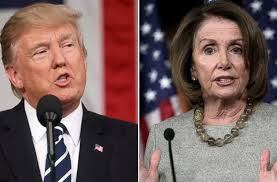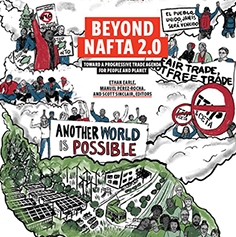The US – South Korea side agreement has been a significant let down on all fronts with minimal gains for US or South Korean workers and set backs on Korea’s environmental protections in the auto industry. While one of Trump’s senior trade advisors, Peter Navarro, said it was a “visionary deal,” this deal falls far short from anything that significantly benefits workers or shifts the status quo.
According to Mark Weisbrot from the Center for Economic and Policy Research (CEPR), the US-South Korea trade deal’s major shift was the increase of the maximum number of cars that US companies can export to South Korea from 25,000 to 50,000. Weisbrot points out that, while the administration has attempted to brag about this feat as an accomplishment, the number of cars made by US companies sold in South Korea did not surpass 11,000, significantly less than the pre-existing quota, and that the cars sold in South Korea by US auto companies do not have to be produced in the United States, meaning that this could have a negligible impact on job creation.
Bill Waren, senior trade analyst at Friends of the Earth, also makes the important distinction that these cars made by US companies fail to meet Korea’s auto emissions standards. The USTR’s approach on this deal has nothing to do with protecting the planet or workers in the US and did nothing to end ISDS tribunals. Lori Wallach, Director of Public Citizen’s Global Trade Watch, said that:
“Success on many key issues that were not addressed at all in this deal – such as the elimination of job outsourcing incentives and the controversial ISDS tribunals, the tightening of automobile rules of origin, and the addition of strictly enforced labor and environmental standards – will determine if a renegotiated NAFTA can get the bipartisan support necessary to get it passed.”
The weak deal is being clouded by Trump’s own threat to postpone its signing until the talks with North Korea have concluded, adding to the administration’s constant use of trade as a weapon against allies. Both in trade and military policy, the administration leans into the discourse of war and holding all positive leverage over allies and foes without generating real results that benefit workers or the environment in the US or anywhere else in the world.
Meanwhile, a scathing Public Citizen report, entitled “Did Administration Officials’ Financial Entanglements with China Delay Trump’s Promised Tough-on-China Trade Policy?”, uncovers deep business ties of the Trump administration in China. The report points out that, while Trump promised to take significant action against Chinese trade abuses in his first year, several members of his administration maintain strong ties to Chinese interests. Amongst these are:
- previous or current ownership of shares in companies profiting from Chinese state-owned investment in the United States (Ross, Cohn, Treasury Secretary Steve Mnuchin, Kushner);
- investments in companies doing business in China that may not have been divested at the time an official was engaged in policymaking that could impact his investments (Ross);
- co-investments with Chinese state-owned investors that may not have been divested at the time an official was engaged in policymaking that could impact his investments (Ross);
- previous direct ownership of stakes in Chinese state-owned companies (Cohn and outgoing Secretary of State Rex Tillerson);
- ownership of businesses awaiting approvals for pending trademark applications in China (Ivanka Trump); and more.
We continue to emphasize that Trump’s actions on trade will not bring justice to workers, does not take care of our environment, does not bring us any closer to peaceful and collaborative economic practices with people from all over the world. The people in power are repeatedly showing themselves to be dishonest, putting their own interests before that of the people and maintaining the status quo of the corporate power of Wall Street and major US corporations throughout the world.
Photo credit: Ahn Young-joon/AP

